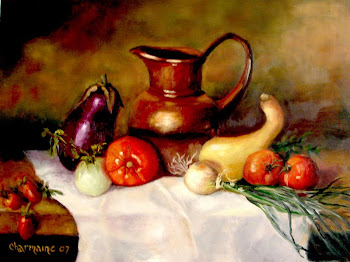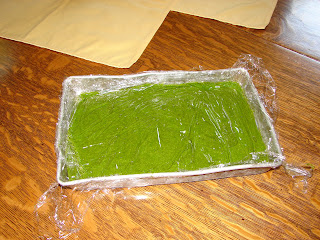I stood before the mirror this morning and raised my sagging
and wrinkled arms to comb my hair. I
thought my skin looked like a mini version of Rino hide. I took a close up at the Zoo when we went
this week with the little boys. Beau wanted a picture to use in a game he is working on. When did this happen to me? Maybe I will have to start wearing long
sleeves every day or perhaps I just need to accept the inevitable and know that
it will get worse. Accepting my deteriorating body is tough.
Change in my life hurts more as I age. I feel vulnerable. Fall was in the air when I walked the hills this
morning. The cool air felt good but I am not ready to let go of this sweet
summer with only one day of 100 degrees.
My secret garden was at its prime 2 weeks ago. I sat in my swing with my eyes going in
circles taking in the flourishing red inpatients and the bright yellow sunflowers
whose blooms have cheered me for 2 months.
The music of the waterfall has lulled me in peace as my eyes
feast on my little herb garden with the 3 metal chickens. I collected them because I like hens but not
roosters. We raised chickens at home
when I was a child. I recall the dozens
of fuzzy little peeps in the coop under lights in the spring and watching them grow
during the summer. The roosters would
peck the hens on the neck and make them bleed.
That’s why I don’t like roosters.
But the main reason I like hens is the scripture; “How oft would I have
gathered you as a hen gathereth her chickens and ye would not.” I understand that pain all too well.
Puttering in my secret garden has been like playing house
this summer. I would dabble and dream
there every summer morning and take a book in the afternoon to lay on the
hammock and read and doze. Perhaps this
is the ideal life that Camelot is made of and of course it can never last but I
wanted just a little more. The Yellow flowers
are fading and falling with the leaves on the flagstones as the wind has been
blowing the last few days. The morning
air is crisp and I know that this sweet time will end before I am ready. I
recall too often that my mother died when she was 64. I have a sense of grasping every precious
moment.
My little herb garden grew better than I expected because
there isn’t a lot of sun on this spot. I
planted lemon basil by mistake and it has excited me as I have looked for ways
to use the bumper crop. Loaded in a tuna
sandwich, chopped in a pasta salad, lemon basil pesto rubbed on a grilled piece
of salmon—oh lovely lemon basil how I will miss you.
Yesterday my neighbors said they are going to put up a
fence. It depressed me all day. I think they don’t like it because we play
badminton when Michael is here. We hook
the net between our houses and one side is wrapped around their rain
gutter. We have only played 3 or 4 times
but Michael loves it. Now there will be
nowhere to play. And then Maren’s dog
trots into their yard sometimes when he is here and I have to invade their
space to retrieve him. But I have only
had Douggy 2 times this summer. Do they
really need to put up a fence? I imagine
I will get used to this change and it will stop depressing me. I have learned that time heals all
disappointment.
Two weeks ago in Sunday School the teacher asked for
examples of how we treat those who have different religious views from us. I wanted to tell about Mike and Gary Boning
but there wasn’t time. Joan Boning has
been Mike’s secretary for many years.
She is a lovely woman and Mike has become good friends with Joan and her
husband Gary over the years. They are
all golfers so they play together often. Mike needs someone to make the T times and
Gary is good at doing this and calling Mike. Mostly Mike has played with Gary and his
Baptist friends. They have invited him
to Baptist golf functions and Mike goes gladly and has bonded with these good
people over the years. Mike knows golf so well that he sometimes
gives them personal golf instruction. We
are aware of some rejection the Boning children felt from LDS kids when they
were in school. It is hard to be a
nonmember in Utah at times. But the
Bonings love Mike and he has loved them and the fact that he is LDS and they
are Baptist has never been an issue.
Recently Gary discovered that he has some LDS relatives that served as a
mission president. Knowing that we are
planning a mission Gary had these people contact us to see if we wanted help or
advice. How considerate of him to do this.
Last Saturday morning Mike received a phone call from
Joan. Gary died unexpectedly from an
aneurism the night before. Of course
Mike would be one of the first people Joan would call. This death has been very upsetting to
us. How are you vibrant and alive one
week and gone the next? Life is so very
fragile. Because we are of a similar age
our mortality is a little too real right now. And knowing that losing a beloved mate has to be the most devastating change of all
At Gary’s funeral we learned that he loved the Savior and
tried to be a disciple all of his life. I
know there will come a time in Paradise when Gary will be taught the fullness
of the gospel and he will say, “I knew a
good, honest, loving Mormon guy, Mike Anderson. He was an example of the believers.”
I am blessed that my life is sweet and I cling to its joys
but I need to learn that it is best not to cling to anything too much or to be too
happy or content because if I do and it all changes I will suffer more than I
should. Can I learn this? Growing older is making it harder.
The Relaxing Corner









